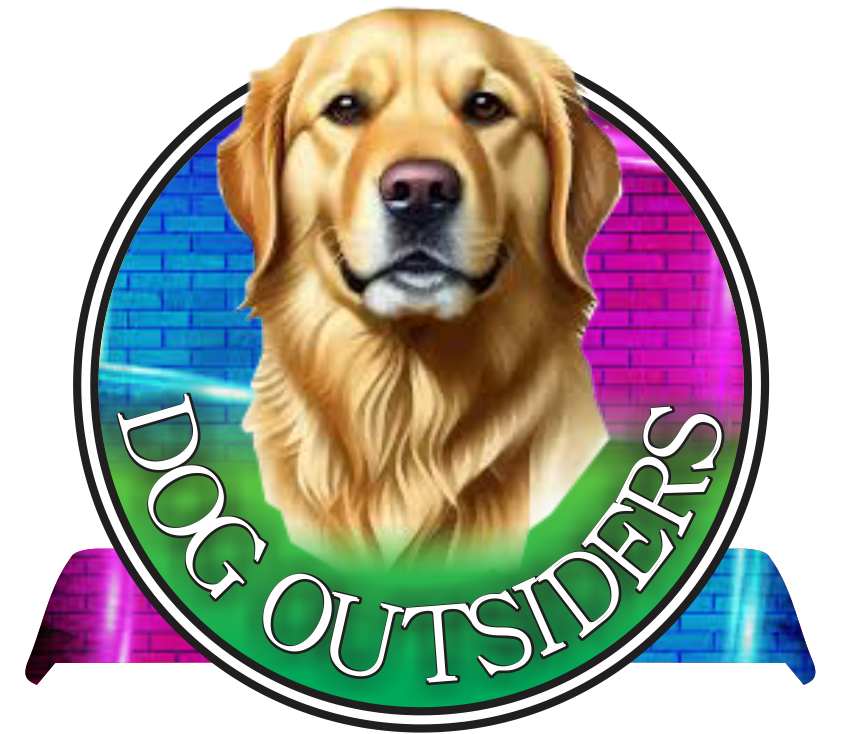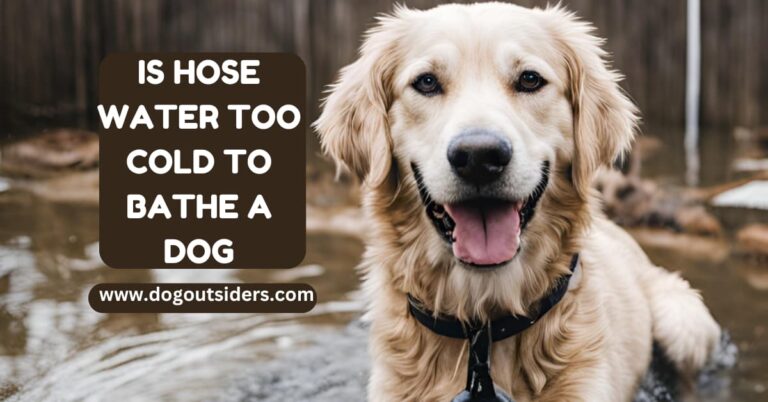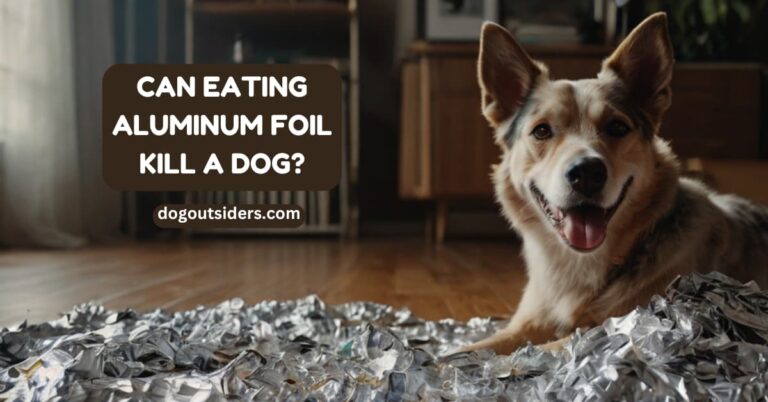As a dog owner, I often worry about the effects of anesthesia on my furry friends. Can anesthesia cause diarrhea in dogs? This question has been on my mind since I learned about the potential side effects of various medications. Historically, anesthesia has played a crucial role in veterinary medicine, allowing for safe surgeries and procedures. However, it’s important to understand that not all dogs react the same way. Some may experience gastrointestinal issues like diarrhea after waking up from anesthesia. I want to explore this topic further, discuss the possible causes like postoperative diarrhea and anesthesia diarrhea, and share tips on how to manage any side effects. My goal is to help fellow pet owners navigate these concerns with confidence and care for their beloved companions.
Key Takeaways
- Anesthesia can impact a dog’s digestive system, potentially leading to diarrhea; understanding this link is crucial for pet owners.
- Monitor your dog closely for signs of diarrhea after anesthesia, such as frequent loose stools or changes in appetite, to ensure timely intervention.
- To prevent diarrhea, ensure your dog is well-hydrated and follow your veterinarian’s pre- and post-anesthesia care instructions carefully.
- If diarrhea occurs, manage it by providing a bland diet and ensuring access to fresh water to prevent dehydration.
- Be aware of the risks of dehydration and electrolyte imbalance that can arise from diarrhea; consult your vet if symptoms persist.
- Seek veterinary help if your dog shows severe symptoms or if diarrhea lasts more than a day, as professional guidance is essential for their health.
The Link Between Anesthesia and Diarrhea
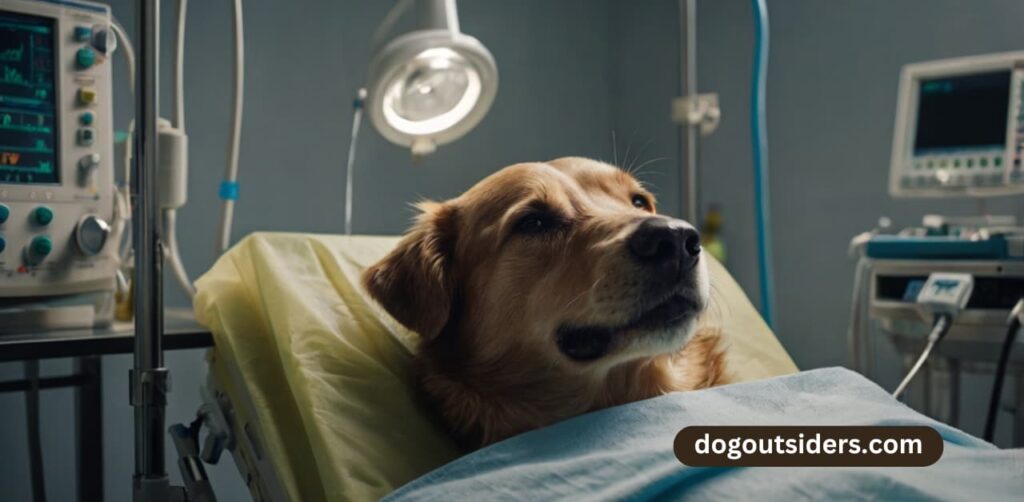
Gastrointestinal Distress
Anesthesia can disrupt normal gastrointestinal function in dogs. This disruption may lead to gastrointestinal distress, which can manifest as diarrhea. The effects of anesthesia on the digestive system, including postoperative diarrhea, vary among individual dogs. Some dogs experience mild symptoms, such as diarrhea, while others may face more severe reactions.
During my dog’s surgery, I noticed she seemed uneasy afterward with anesthesia diarrhea. Her stomach was upset, and she had loose stools for a couple of days. This experience made me realize how sensitive a dog’s digestive system can be after undergoing anesthesia.
Stress and Anxiety
Stress and anxiety during anesthesia can also affect digestion. Dogs often feel anxious about being away from their owners or in a clinical environment. This stress response can alter their normal digestive processes. Stress hormones can slow down or speed up gut movement, leading to diarrhea.
I remember feeling anxious when my dog was under anesthesia. I worried about how she would react afterward. It’s essential for pet owners to recognize that anxiety can play a significant role in post-anesthesia complications.
Monitoring Post-Anesthesia Symptoms
Post-anesthesia diarrhea is a common side effect that pet owners should monitor closely. After surgery, it’s crucial to keep an eye on your dog’s bowel movements. If diarrhea occurs, it typically results from the anesthesia or related stress factors.
Veterinarians often recommend monitoring food intake and hydration levels during this time. If diarrhea persists beyond 24 hours, contacting your veterinarian is advisable. They may suggest dietary adjustments or other treatments to alleviate symptoms.
In some cases, diarrhea may indicate a more serious issue, such as an infection or reaction to medications used during the procedure. Being vigilant helps ensure any potential problems are addressed quickly.
Seeking Veterinary Advice
If a dog experiences diarrhea after anesthesia, seeking veterinary advice is vital. A veterinarian can provide guidance tailored to the specific situation. They may recommend tests to rule out infections or other underlying issues.
I found it helpful to have open communication with my vet after my dog’s surgery. They provided reassurance and advice on what signs to watch for at home.
How Anesthesia Affects a Dog’s Digestive System
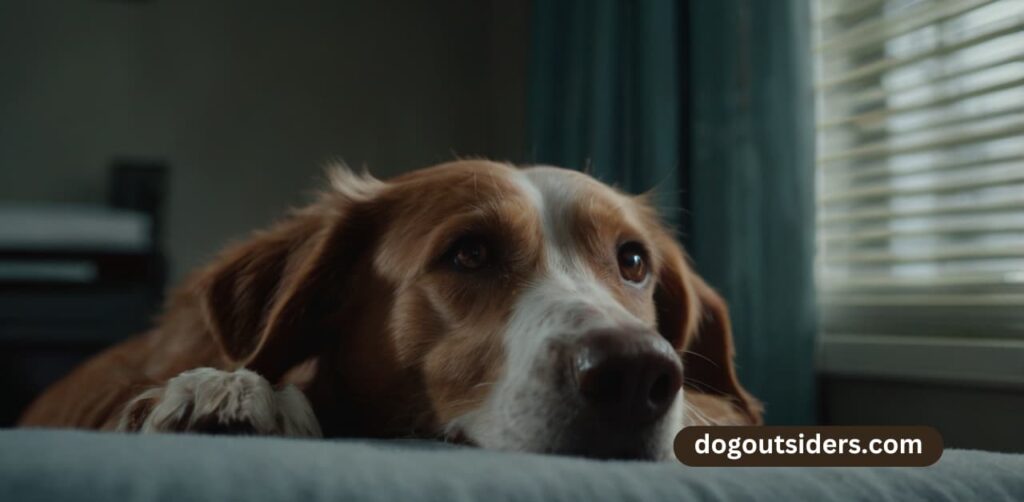
Gastrointestinal Motility
Anesthesia can significantly slow down gastrointestinal motility. This slowdown affects how food moves through the digestive tract. When a dog undergoes full anesthesia, the body enters a state of relaxation. Muscles in the digestive system also relax. This can lead to delayed digestion and potential constipation.
I have noticed that after my dog’s surgery, he seemed less active and had trouble eating. It took him longer to regain his normal appetite. This experience highlighted how anesthesia can disrupt the digestive process.
Gut Flora Alteration
Anesthetic agents may alter gut flora, which plays a crucial role in digestion. Changes in bacteria levels can lead to gastrointestinal disturbances. Anesthesia can impact the balance of beneficial bacteria in the gut. This imbalance may contribute to diarrhea after surgery.
Research indicates that certain anesthetic gases can disrupt the microbiome temporarily. This disruption can create an environment where harmful bacteria thrive. If your dog experiences changes in stool consistency post-anesthesia, it may relate to these shifts in gut flora.
Duration of Anesthesia
The duration of anesthesia correlates with the severity of digestive complications. Longer periods under general anesthesia can increase the risk of gastrointestinal issues. Studies show that extended exposure to anesthetic agents may worsen motility problems.
In my experience, dogs who underwent shorter procedures often recovered faster without digestive issues. However, those who remained under anesthesia for longer durations sometimes faced more significant challenges.
Post-Anesthetic Care
Post-anesthetic care is vital for maintaining digestive health. Monitoring your dog’s eating habits and stool consistency is essential after surgery. Providing a bland diet can help ease their recovery and support their digestive system.
Veterinarians often recommend foods that are easy on the stomach after anesthesia. This approach helps restore normal digestion and promotes gut health. I always keep an eye on my dog’s behavior during this time to catch any signs of discomfort early.
Causes of Diarrhea After Anesthesia
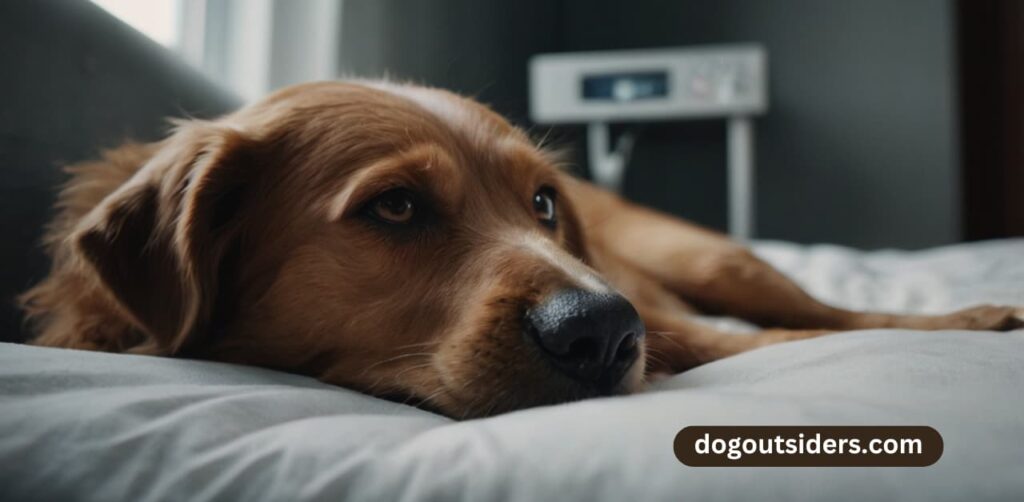
Stress Factors
Surgery can create significant stress for dogs. This stress often leads to digestive upset. I have seen this firsthand with my own pets. The unfamiliar environment and the presence of strangers can heighten anxiety. Stress hormones can disrupt normal gastrointestinal function. This disruption may result in diarrhea after anesthesia.
Dietary Changes
Many veterinarians recommend fasting before surgery. This fasting is meant to reduce the risk of aspiration during anesthesia. However, it can also upset a dog’s digestive system. After fasting, some dogs may experience dietary changes that trigger diarrhea. Transitioning back to regular food too quickly can overwhelm their stomachs. It is essential to reintroduce food gradually.
Medication Impact
Medications administered during or after anesthesia play a crucial role in bowel health. Some anesthetics can affect gut motility. Other medications, such as pain relievers or antibiotics, may also cause gastrointestinal issues. For instance, antibiotics can disrupt the natural gut flora, leading to diarrhea.
I remember a time when my dog had surgery and was given antibiotics afterward. He developed diarrhea shortly after returning home. The vet explained that it was a common reaction to the medication.
Recovery Considerations
Post-surgical recovery is vital for a dog’s overall health. During this period, monitoring bowel movements becomes important. If diarrhea occurs, it may indicate an underlying issue related to anesthesia or medications.
Veterinarians often recommend a bland diet during recovery. Foods like boiled chicken and rice can help settle the stomach. Keeping an eye on hydration is also crucial since diarrhea can lead to dehydration.
Identifying Symptoms of Diarrhea in Dogs
Signs of Diarrhea
Diarrhea in dogs can present with several specific signs. Increased frequency of bowel movements is a primary indicator. Owners should observe if their dog visits the bathroom more often than usual. A change in stool consistency is also crucial. Watery or loose stools are common symptoms.
I remember my own dog experiencing these changes after a routine procedure. I noticed he had urgent bowel movements and his stool was not firm. This made me realize the importance of monitoring closely.
Behavioral Changes
Behavioral changes often accompany diarrhea. Lethargy is one such sign to watch for. Dogs may seem less energetic or reluctant to play. Restlessness can also occur, as they may feel uncomfortable due to digestive disturbances.
In my experience, when my dog had diarrhea, he would pace around the house and seemed anxious. It’s vital to connect these behavioral shifts with physical symptoms for a complete picture.
Monitoring for Dehydration
Dehydration is a serious concern linked to diarrhea. Dogs lose fluids quickly during episodes of loose stools. Owners should monitor their pets for signs of dehydration, which include dry gums and excessive thirst.
I always keep fresh water available for my dog, especially during these times. Watching for decreased skin elasticity can also help assess hydration levels. Gently pulling the skin on the back of the neck should show quick return if they are well-hydrated.
Urgent Bowel Movements
Urgent bowel movements can indicate a more severe issue. If your dog seems desperate to go outside frequently, this could signal distress in their digestive system. It’s important to track how often these urgent trips occur.
When my dog had operative diarrhea, I noted that he would whine and scratch at the door repeatedly. This urgency prompted me to consult our veterinarian immediately.
Long-term Effects
Subsequent diarrhea can have long-term impacts on a dog’s health. Frequent digestive disturbances may lead to weight loss or nutritional deficiencies over time. It’s essential to address any ongoing issues promptly.
If diarrhea persists beyond 24 hours, it’s wise to seek veterinary care. The vet can determine if there’s an underlying cause related to anesthesia or other factors.
Preventing Diarrhea After Anesthesia
Dietary Guidelines
Implementing pre-anesthetic dietary guidelines is crucial. Feeding dogs a light meal the night before surgery can help. This reduces the risk of nausea and gastrointestinal upset after anesthesia. I always recommend discussing specific food options with your veterinarian. They may suggest easily digestible foods that won’t irritate the stomach.
Post-surgery, it’s important to introduce food gradually. Start with small portions of bland food. Monitor your dog for any signs of digestive distress. A gradual approach helps ensure their digestive system can handle the food without complications.
Hydration Importance
Proper hydration is essential before and after anesthesia. Dehydration can lead to various complications, including diarrhea. Providing fresh water before the procedure helps maintain hydration levels. I’ve seen dogs recover better when they are well-hydrated during this time.
After anesthesia, continue to offer water frequently. Encourage your dog to drink small amounts at a time. This supports digestive health and prevents constipation or diarrhea. If your dog refuses to drink, consult your veterinarian for advice.
Individualized Anesthesia Plans
Each dog has unique needs regarding anesthesia protocols. Tailoring an anesthesia plan to fit those needs can minimize risks. Factors like age, weight, and medical history play a role in selecting anesthetic medications.
Dedicated anesthesia nurses often assess these factors thoroughly. They work closely with veterinarians to create a safe anesthetic protocol for each dog. I believe that individualized plans significantly reduce the chances of perioperative complications.
Short-acting anesthetics may be preferred for certain procedures. These allow for quicker recovery times and less impact on the digestive system. Discussing these options with your vet ensures you understand the benefits and risks involved.
Monitoring Recovery
Monitoring your dog’s recovery is vital after anesthesia. Watch for symptoms of diarrhea or any unusual behavior. Early detection of issues allows for prompt intervention.
Keeping a close eye on their eating habits post-surgery is also important. If diarrhea occurs, consider contacting your veterinarian immediately. They can provide guidance on managing this complication effectively.
Managing Diarrhea in Dogs Post-Anesthesia
Dietary Adjustments
Bland food can soothe a dog’s digestive system after surgery. I often recommend boiled chicken and rice. This simple diet is easy to digest. It helps to minimize irritation in the gastrointestinal tract. Gradually introduce this bland diet for the first few days post-surgery.
After a couple of days, assess your dog’s condition. If diarrhea improves, slowly reintroduce their regular food. Monitor how they react to these changes. This step is crucial for their recovery process.
Medications and Probiotics
Over-the-counter medications can assist in treating postoperative diarrhea. Products containing probiotics can help restore gut balance. These supplements support healthy digestion and improve overall gut flora.
I have found that many dogs benefit from these probiotic treatments after anesthesia. They often help reduce symptoms like postanesthetic vomiting and diarrhea. Consult your veterinarian before starting any medication. They can recommend the best options based on your dog’s health status.
Monitoring Recovery
Monitoring your dog during recovery is essential. Keep an eye on their bowel movements and overall behavior. Changes in appetite or energy levels may indicate complications.
If diarrhea persists beyond 48 hours, contact your vet. Persistent symptoms could signal underlying issues related to the anesthetic management or surgery itself.
I remember a time when my dog had similar postoperative complications. Regular monitoring allowed me to catch signs early. Quick action led to effective treatment without further stress.
Steps for Care
- Start with a bland diet.
- Introduce probiotics if needed.
- Monitor for 48 hours.
- Gradually return to normal feeding.
- Contact a vet if symptoms persist.
Following these steps ensures your dog has a smoother recovery journey after anesthesia.
Risks of Dehydration and Imbalance
Dehydration Dangers
Dehydration is a serious risk for dogs recovering from anesthesia. Diarrhea can lead to significant fluid loss. This loss can hinder recovery and cause further complications. Dogs may show signs of distress, such as lethargy or dry gums.
I remember a time when my dog experienced diarrhea after surgery. I noticed he was less active and drinking less water. It worried me because dehydration can have severe consequences.
Maintaining hydration is crucial during recovery. Water intake helps support vital functions in the body. A dehydrated dog may face longer recovery times and increased discomfort.
Electrolyte Imbalance
Fluid loss from diarrhea can cause electrolyte imbalances. These imbalances affect muscle function and nerve signaling. Low levels of potassium can lead to weakness or heart issues. Sodium imbalances can also disrupt normal bodily functions.
Monitoring electrolyte levels is essential for dogs recovering from anesthesia. Vets often recommend specific diets to help restore balance. A bland diet can be beneficial in these cases. It allows the digestive system to recover while providing necessary nutrients.
Continuous Monitoring
Continuous monitoring of hydration levels is vital during recovery. Owners should check their dog’s water intake regularly. Signs of dehydration include sunken eyes, dry mouth, or decreased skin elasticity.
I found that offering fresh water frequently encourages my dog to drink more. Keeping track of his hydration helped ease my concerns about potential complications.
Veterinarians may suggest adjustments based on the dog’s condition. They might recommend oral rehydration solutions if diarrhea persists. These solutions replace lost fluids and electrolytes effectively.
Underlying Causes
Identifying underlying causes of diarrhea is necessary for proper treatment. Stress can trigger gastrointestinal issues in some dogs, especially after surgery. Changes in diet or routine may also contribute to digestive upset.
Consulting with a veterinarian ensures that any serious conditions are addressed promptly. They can provide guidance on dietary changes that promote recovery.
Understanding the impact of anesthesia on a dog’s digestive health is crucial. Owners must be proactive in managing their pet’s hydration and comfort during this period.
When to Seek Veterinary Help
Persistent Diarrhea
I always recommend consulting a veterinarian if diarrhea lasts more than 24 hours. Prolonged diarrhea can lead to dehydration and other serious health issues. Pet owners should monitor their dog’s condition closely. If the diarrhea continues, it’s essential to seek veterinary advice.
Dogs can become dehydrated quickly. Signs of dehydration include dry gums, lethargy, and loss of skin elasticity. If you notice these symptoms, contact your vet immediately.
Severe Symptoms
Look for signs of severe dehydration or blood in the stool. Both conditions are serious and require immediate attention. Blood in the stool may indicate an underlying issue that needs urgent care.
I once had a dog that showed similar symptoms after surgery. The vet advised me to bring him in right away. It turned out he had developed a complication that required treatment.
Behavioral Changes
Significant behavioral changes also warrant prompt veterinary intervention. If your dog appears unusually lethargic or shows discomfort, don’t hesitate to seek help. Changes in behavior can signal pain or distress.
My own experience taught me how important it is to listen to my pet’s cues. A sudden change in my dog’s activity level led me to consult my vet. They provided valuable guidance on how to address the situation effectively.
Appropriate Treatment Options
Veterinarians can provide appropriate treatment options based on the diagnosis. Treatments may include medication, dietary changes, or hydration therapy. Each case is unique, so professional assessment is crucial.
I learned that not all treatments work for every dog. My vet suggested specific foods that helped my dog recover faster from gastrointestinal issues. Following their guidance made a significant difference.
Care and Support
Providing proper care during recovery is vital for your dog’s well-being. Keep your pet comfortable and ensure they have access to fresh water at all times. This helps prevent further dehydration.
In my experience, maintaining a calm environment aids recovery as well. Stress can exacerbate health issues in pets, so it’s wise to create a soothing space for them.
Final Remarks
I’ve explored how anesthesia can impact a dog’s digestive system and lead to diarrhea. Understanding the causes and symptoms is crucial for any pet owner. I’ve also shared preventive measures and management tips to help your furry friend recover smoothly.
If your dog experiences diarrhea post-anesthesia, don’t hesitate to consult your vet. Early intervention can prevent complications like dehydration. Take charge of your pet’s health by staying informed and proactive. Your dog deserves the best care possible!
Frequently Asked Questions
Yes, anesthesia can lead to diarrhea in dogs due to its effects on the digestive system and potential stress during surgery.
Diarrhea may occur within 24 to 48 hours post-anesthesia as the body adjusts. Monitor your dog closely during this period.
Ensure your dog stays hydrated. Offer bland food and monitor their symptoms. If diarrhea persists for more than 24 hours, consult your veterinarian.
Certain breeds may be more sensitive to anesthesia, but all dogs can experience gastrointestinal upset. Always discuss concerns with your vet prior to procedures.
Yes, medications like antibiotics or pain relievers can disrupt a dog’s gut flora, leading to diarrhea. Talk to your vet about potential side effects.
Mild gastrointestinal upset is common after anesthesia. However, persistent vomiting or severe diarrhea requires veterinary attention.
If diarrhea lasts longer than 24 hours, is accompanied by vomiting, lethargy, or blood, seek veterinary help immediately. Timely intervention is crucial for your dog’s health.
